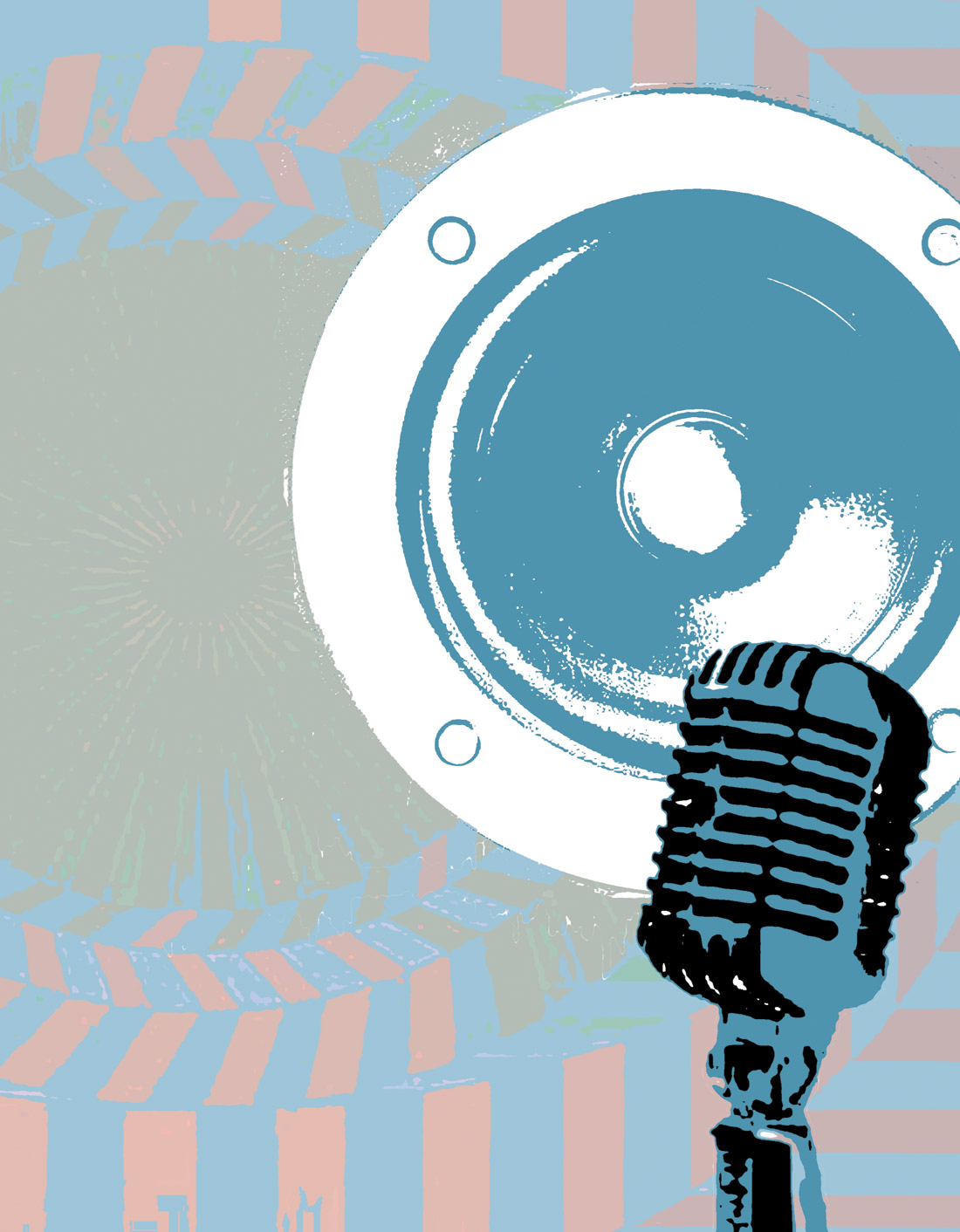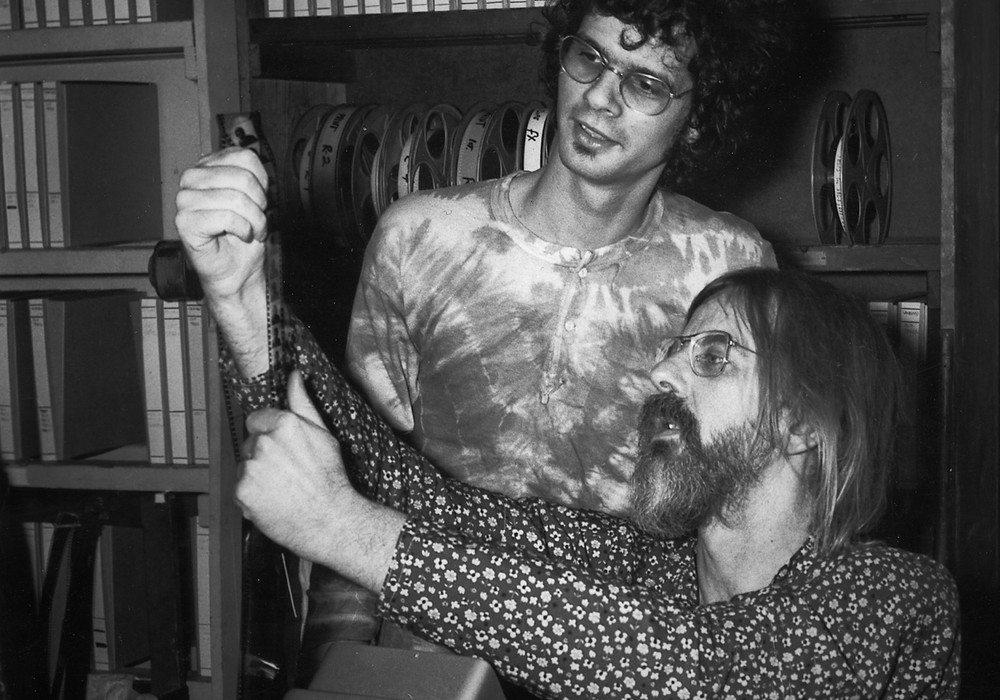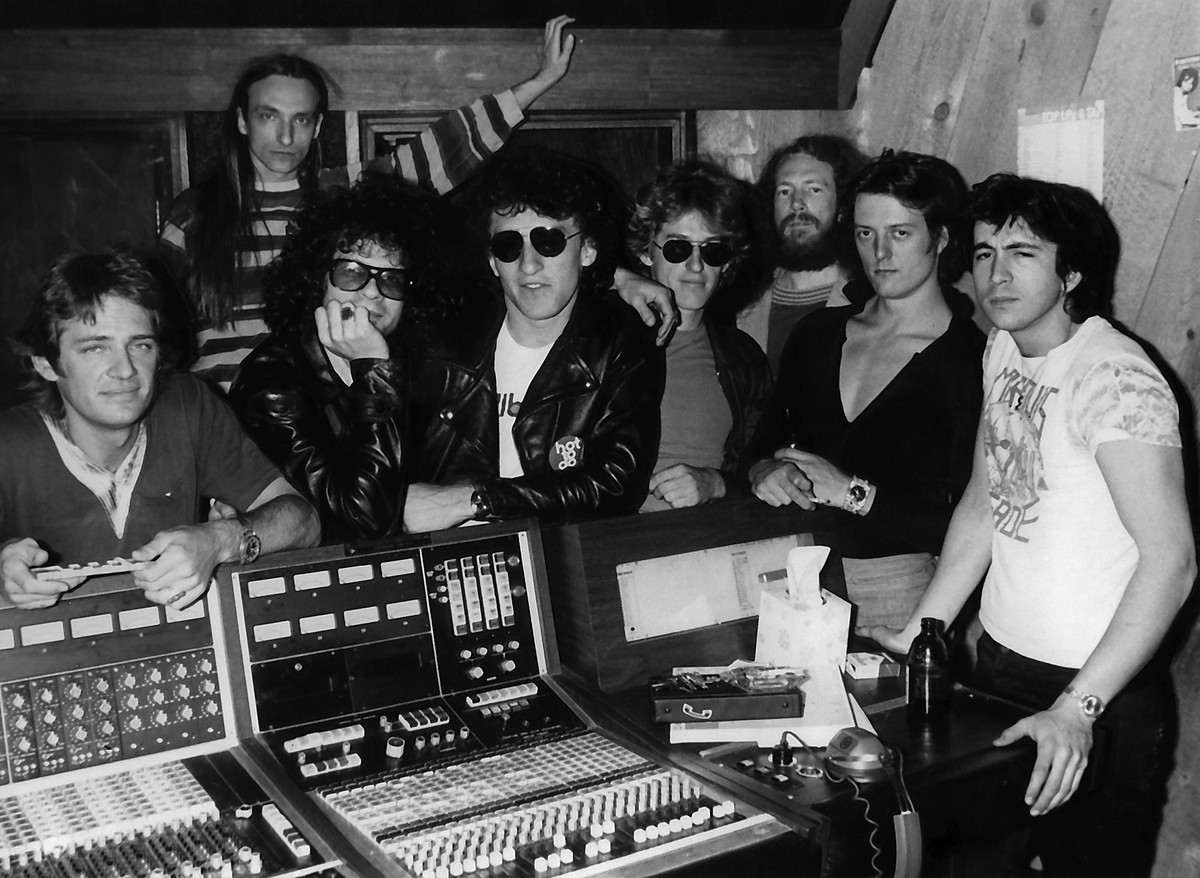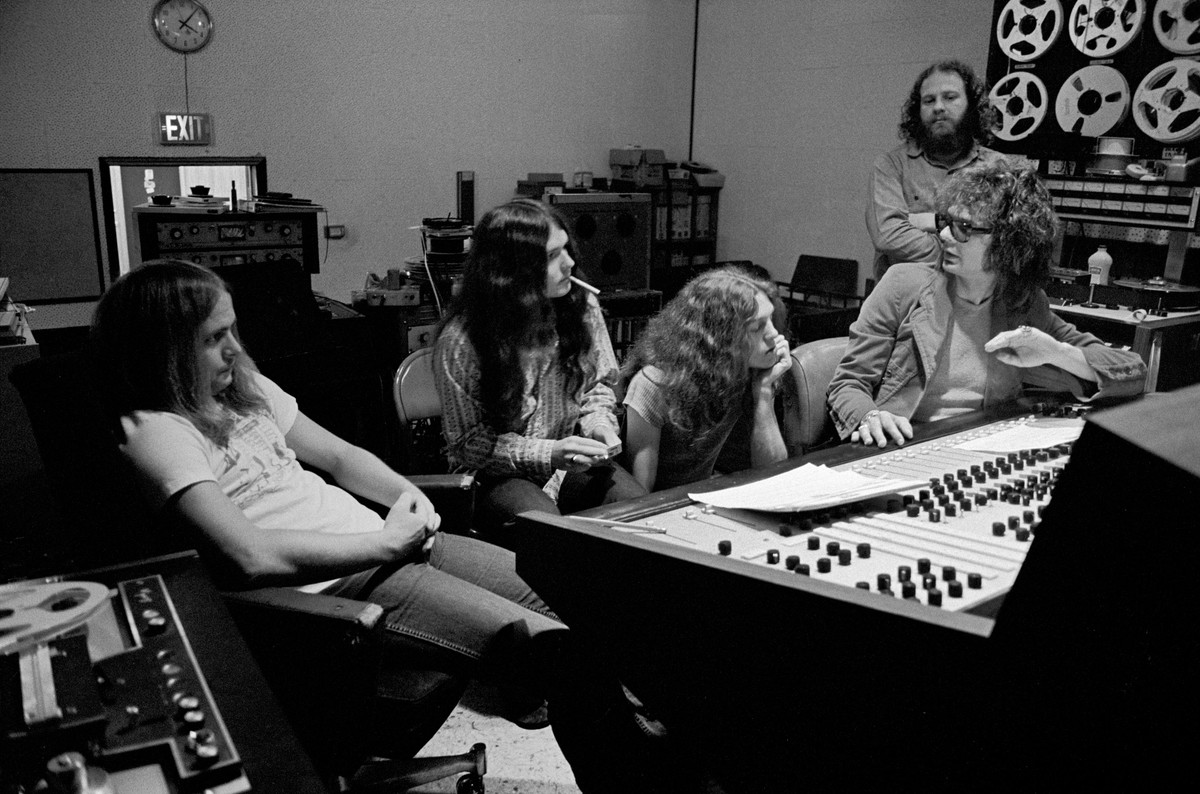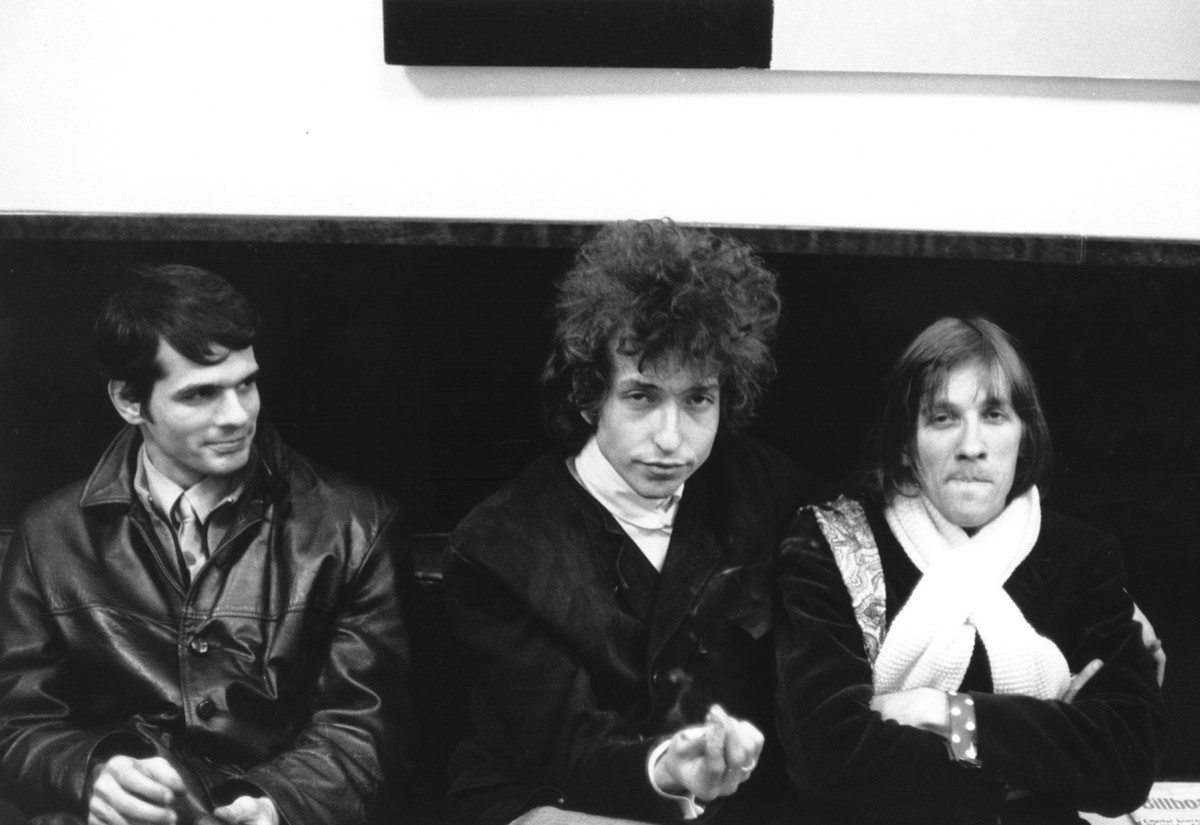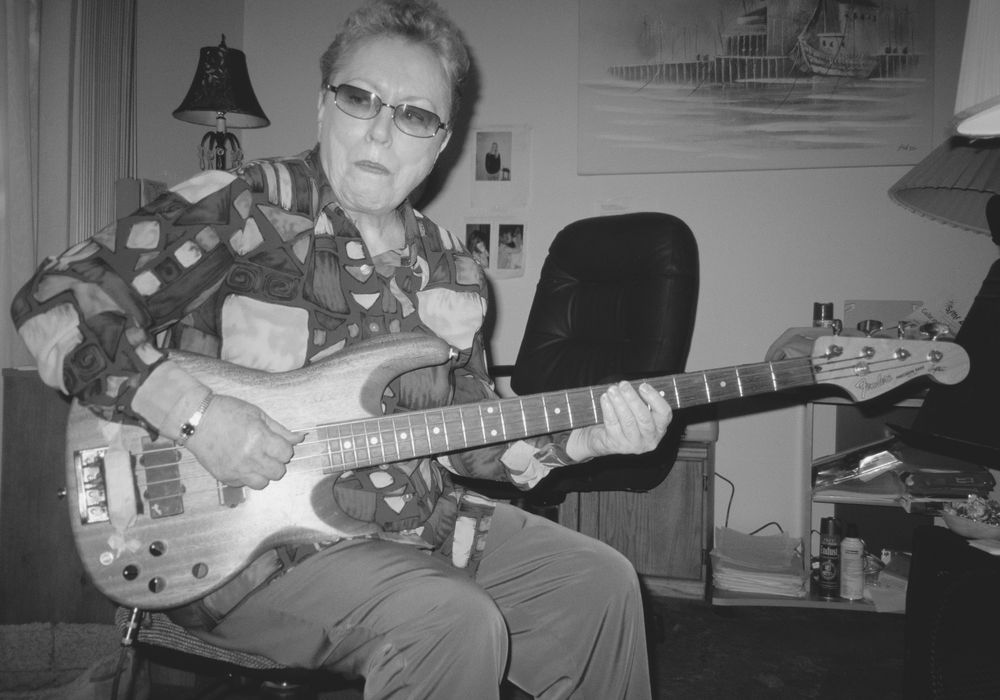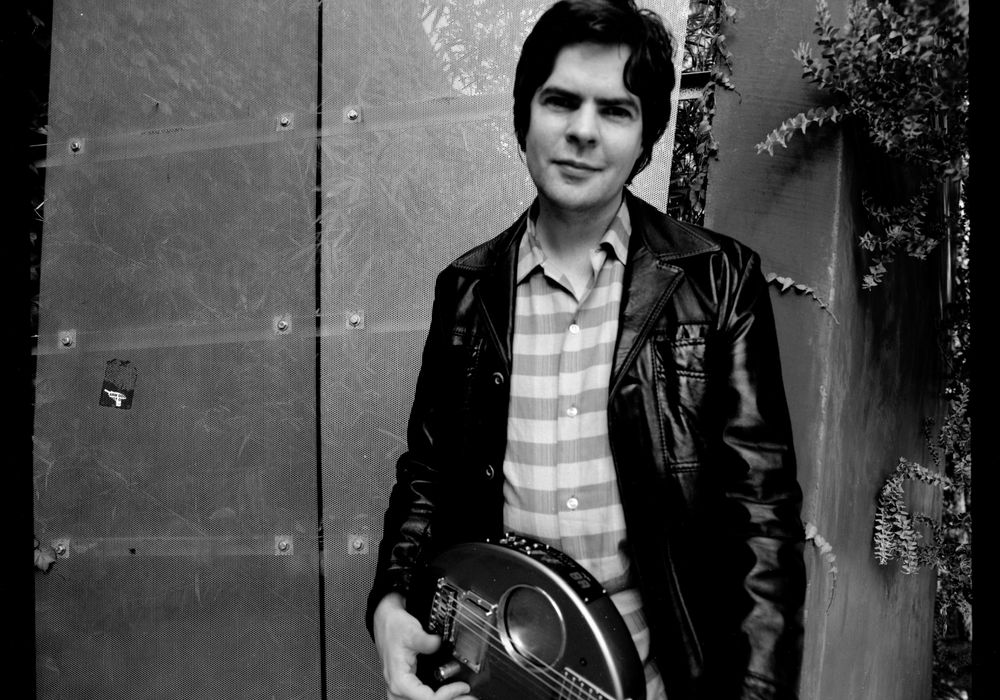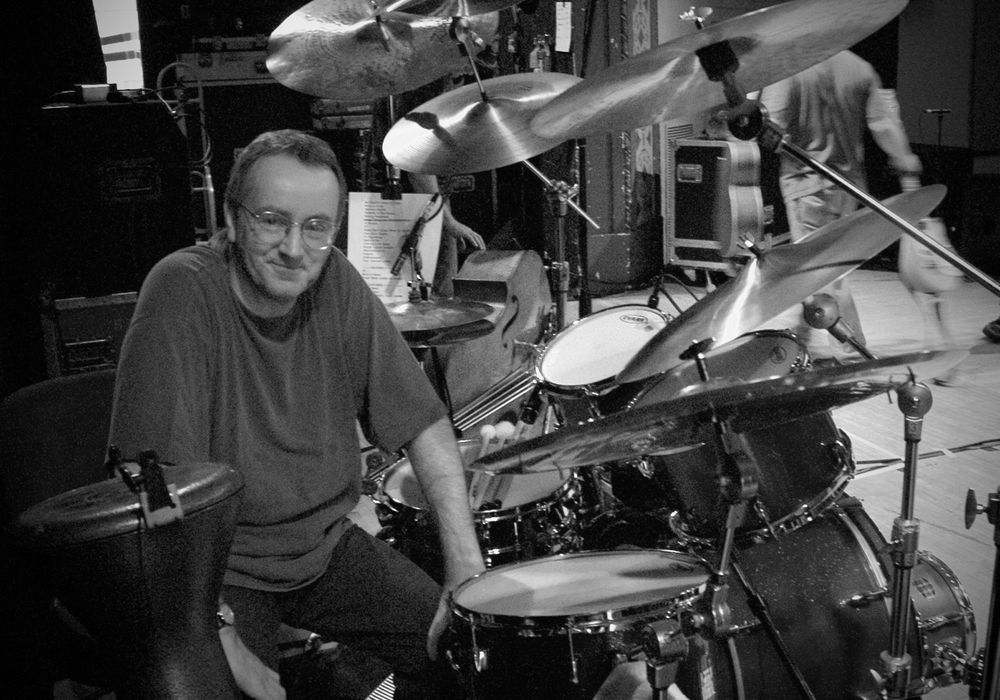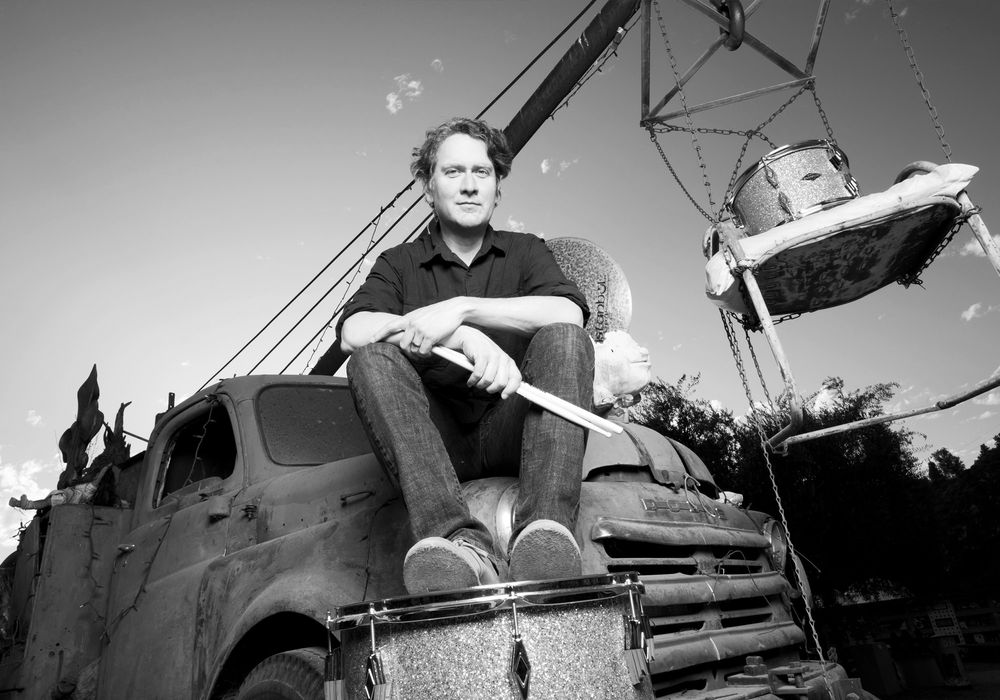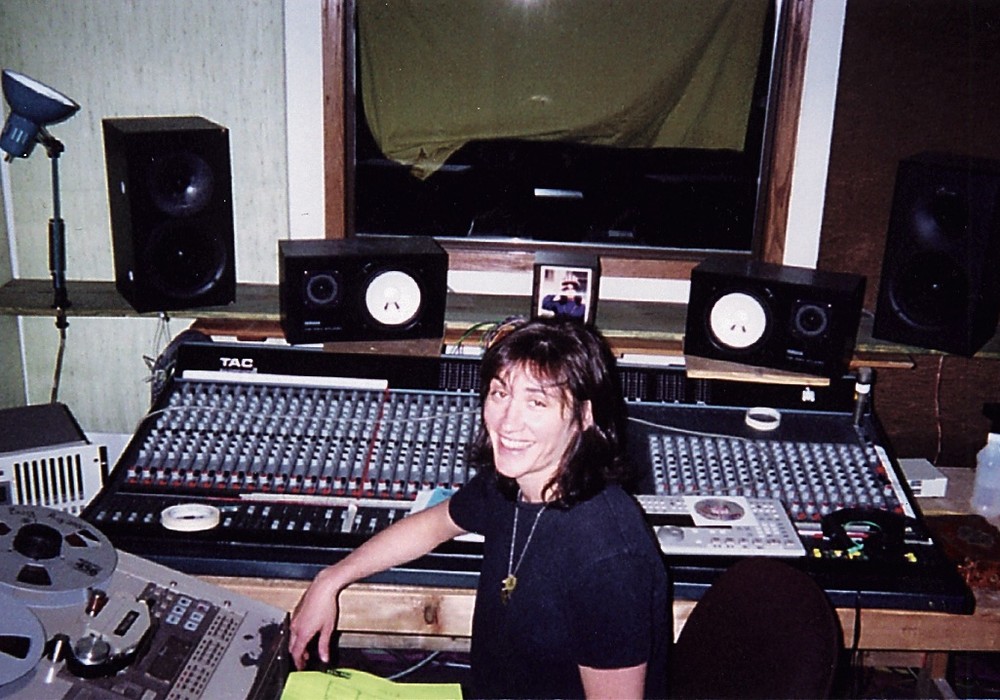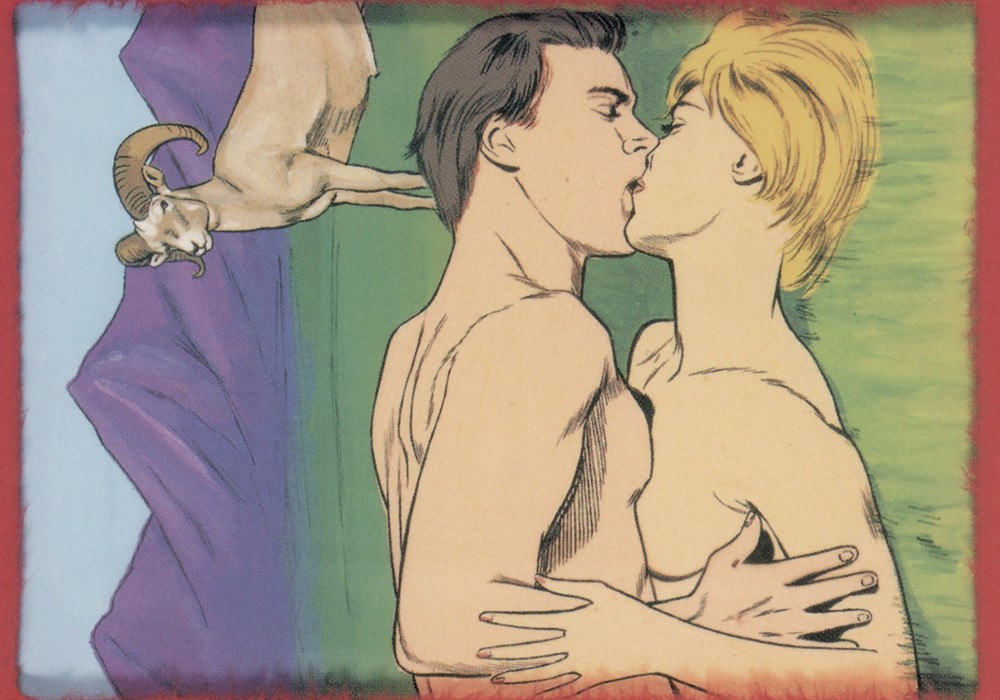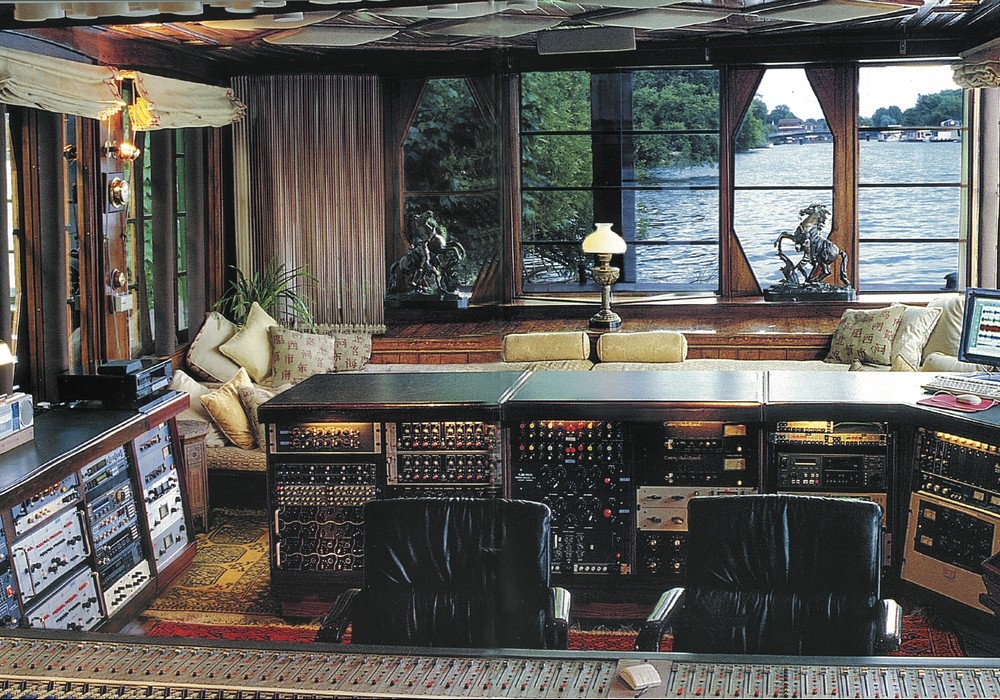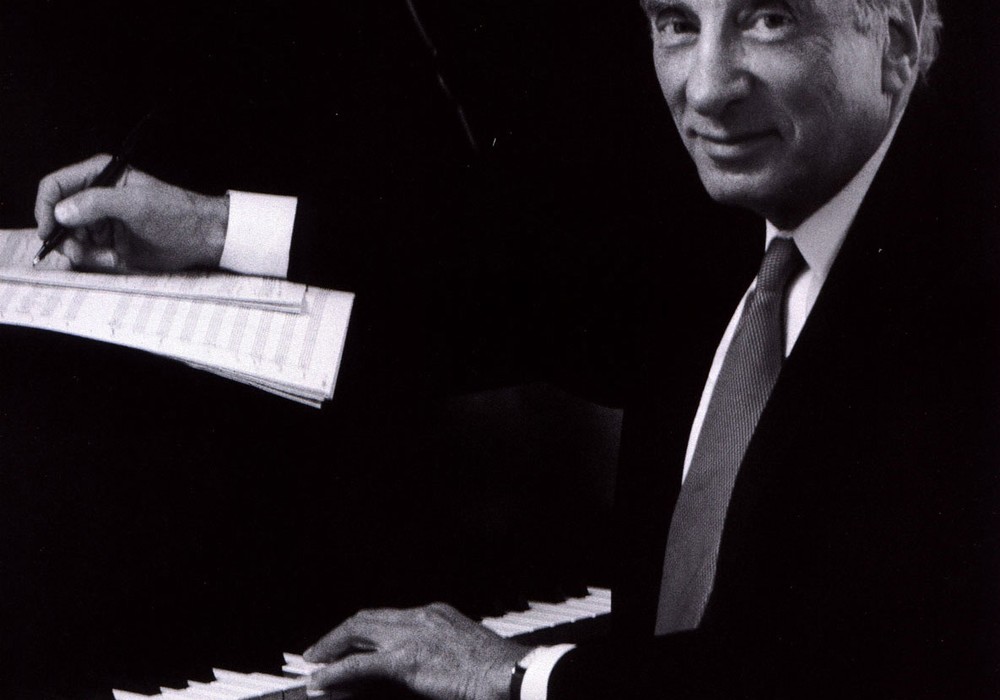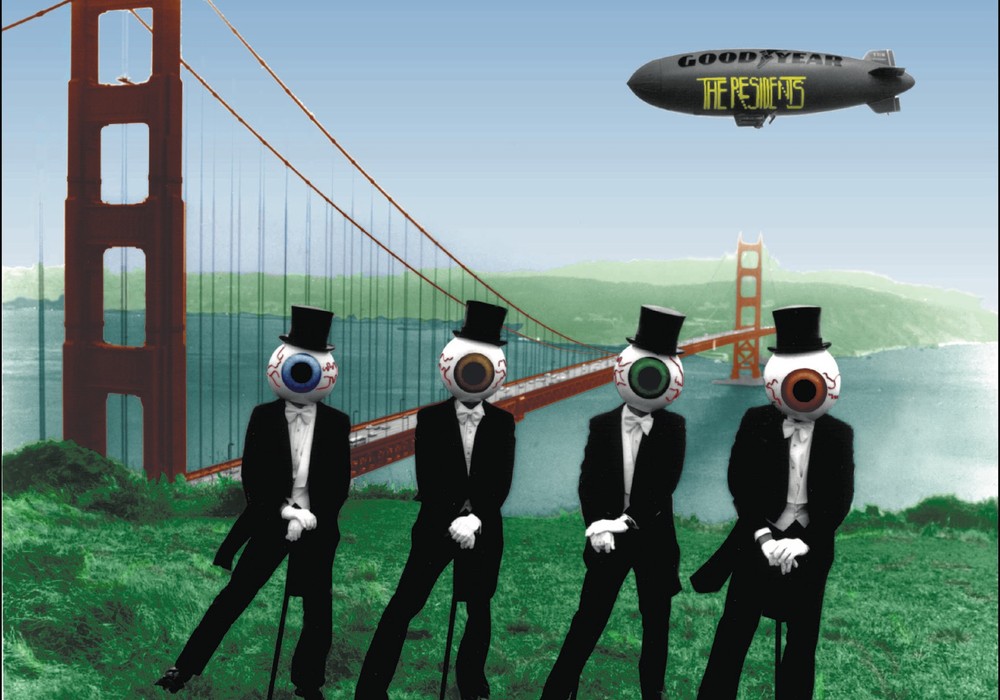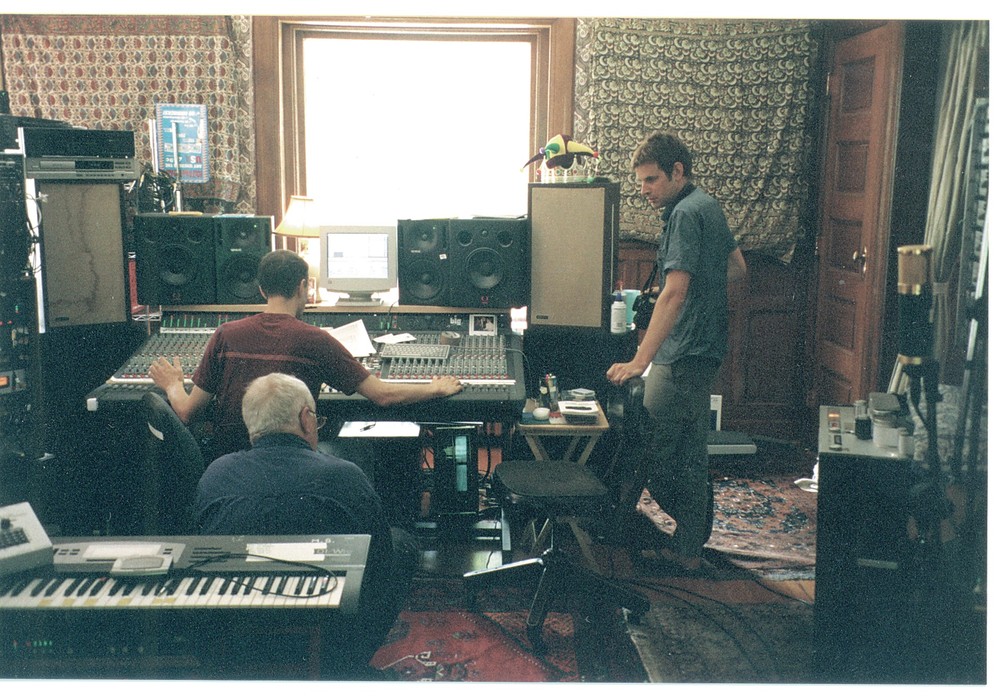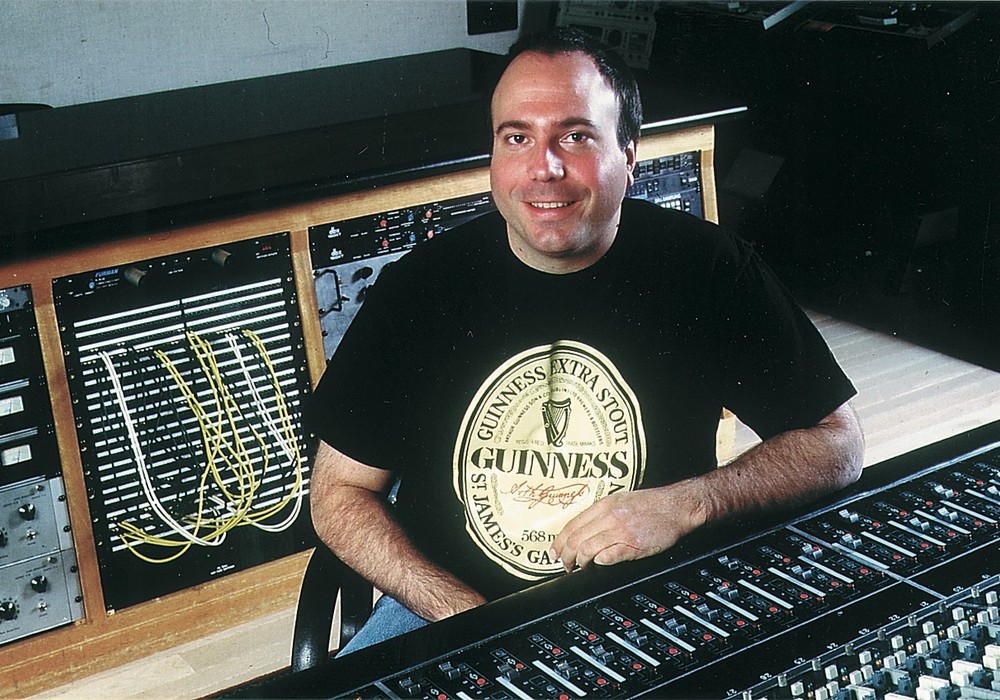Al Kooper's musical resume reads like a rock and roll version of Where's Waldo. Sometimes he's right there staring at you, other times you have to sleuth around to find him lurking in the shadows. But somehow the guy seems to show up on nearly every page of rock history.
Ticking off Al's career highlights is akin to making a "Tape Op readership fantasy career wish list." Boldly crashing a 1965 Bob Dylan recording session and ending up playing the signature organ lines on the Highway 61 Revisited album as well as Blonde on Blonde? Check. Founding probably the first horn-based rock band — Blood, Sweat & Tears — thereby ushering in a new type of pop/rock? Check. Discovering one of the top bands of the classic rock era — Lynyrd Skynyrd — and producing, mixing, and playing on the perennial arena rock anthem, "Free Bird?" Check. Playing with Hendrix, the Stones and The Who on Electric Ladyland, Let It Bleed and The Who Sell Out? Check. Producing nearly a score of high quality solo albums with full artistic control, most of which were bequeathed very generous budgets, which are then used to hire some of the modern era's most talented musicians? Check. Being given one of Jimi Hendrix's guitars by the man himself? Check. Discovering The Zombies' nearly shelved Odessey and Oracle album and convincing the label to release it in the U.S., thereby unearthing the potentially lost "Time Of The Season"? Check. Producing The Tubes' "White Punks On Dope"? Check. Writing what is arguably the most entertaining musical autobiography (Backstage Passes and Backstabbing Bastards)? Check. And this is just the tip of the iceberg.
Starting in the late 1950s, the multitalented Brooklyn native set about making it in the music industry with an intensity and ambition few others could ever claim. From his teenage tenure as a guitarist in The Royal Teens ("Short Shorts"), to co-writing "This Diamond Ring", to a teaching position at Boston's Berklee School of Music up until 2001, Kooper has not slowed down much at all. When I met with him at his Boston-area home, he was just coming off a slew of solo shows and preparing for a tour of Japan with his current band, The Funky Faculty. A gracious host with deadpan humor in spades — when I asked if we could take some photos during the interview, he demurred, "My hair won't look good for days." Al showed me around the house, including a tour of his studio, Subterranean Homesick Studio in the basement (of course) and played me numerous remastered selections from his recently released solo career retrospective album 50/50.
I read your autobiography a few years back, and one of my favorite bits is the story of the Jimi Hendrix Stratocaster.
Well, basically he gave me one of his guitars when I played on Electric Ladyland. He wanted to give it to me at the session. I told him he was crazy and, "No." And he said, "Why?" I said, "It's your guitar. What are you giving it to me for?" The next day he had it delivered to my house by his roadie, so I said, "Okay!" Then I had to do stuff to it so I could play it. I had guilt pangs about that. I had it for about 22 years and I sold it in 1991, because people were breaking into my houses in two cities. I made a big noise about selling it so that they would stop breaking into my house.
Did it work?
Yeah. I sold it for $100,000. I knew that if I held onto it, it would hit the million mark, but I couldn't have it around anymore. It was a magic guitar, but I was glad when it went, and I was glad to get that $100,000 for a piece of wood with six pieces of wire on it that I didn't pay anything for.
[laughter] Earlier we were talking about hard drive crashes. Tell me about your film score that crashed.
It was a film I did about four years ago and the director is a friend of mine — Peter Riegert — he's a character actor, or as Dr. John says, "A char-actor". He was in Animal House and Local Hero and a whole bunch of movies — Traffic - and this was his first feature that he was directing. We did a short together, which was the first thing that he directed. It was nominated for an Academy Award so I figured we'd stick together. We actually had a Blake Edwards/Henry Mancini deal — every film that Blake Edwards directed, Henry Mancini did the score. This was Peter's first feature, and initially he started out with a lot of music in mind. So I did all this music and the hard drive ate it — I didn't have it backed up. I'll tell you though, redoing it wasn't as difficult because it was current and it was in my mind. I got it back pretty fast. After I got it back, the producer talked him into using as little music as possible in the film. [laughter] So hardly any of it actually got used. That's what happens when you score films.
Redoing of it was kind of as if you had done fancy demos?
Well, it was instructional. Film scoring requires a whole other head. If you're a great musician and a great composer, that does not guarantee that you're going to be a good film scorer. It takes me two weeks of writing fake cues to warm up for it, because you have to be fluent in breaking rules in order to do the job properly. I am so versed in rules that it's very difficult for me to get in that head, but I can do it. Also, you have to be totally unemotional about what you write, because film directors are notorious for not understanding film scores. So it's a tough one.
How did you learn about syncing to cues and all?
The hard way. I scored my first film [The Landlord] in 1969. There were no computers back then, so I had to do it by hand. The producer of the film, Norman Jewison — a famous film director himself — interviewed me when the director picked me, and he was horrified. I was sitting in front of his desk with the director, Hal Ashby, and he said, "Have you ever scored a film before?" and I said, "No." He went, "Ugh," and then Ashby kicked me and whispered, "Just go along with this." He was not very happy about the choice, but I actually limped my way through and that really prepared me for going ahead. But as you do it, you learn so much more. If I had to give advice to somebody, I would tell them that when you look at a scene that they want you to score you should watch the editing in the scene and see if you can capture the rhythm that the editor was cutting to. A lot of them cut to "dummy" music and there's a rhythm there. If you can make that choice before you write the piece, then your downbeats will land on the edits and it's a very nice thing.
That's good advice.
Yeah. But don't try this at home... I'm a professional. [laughs]
You've accomplished so many diverse things in a pretty short amount of time. It seems like you're a ball of energy and ambition.
It's not such a short time anymore... I'm very much a hermit — I don't leave the house. I'm also an insomniac, so I have the advantage of having more hours a day than most people. I just passed my fiftieth year in the music business. Ambition is key. I've said this very often — When I started in 1958 I was probably 10 percent talent and 90 percent ambition. Now I feel it's reversed.
Where do you think you got your ambition?
Growing up in New York. It's a tough place. If you're gonna do something, you've got to go out and do it. And the music business also — very tough.
Especially at that time.
It was unbelievable. But it was so educational. I worked primarily at the place called 1650 Broadway on 51st Street between Broadway and 7th. What an amazing place. There was so much going on in that building. All the things that they attribute to the Brill Building, which is 1619 Broadway, did not happen in the Brill Building. It happened at 1650 Broadway. Carole King and Gerry Goffin, Barry Mann and Cynthia Weil, Neil Sedaka, Dionne Warwick - all these people were in 1650 Broadway. It's called "The Brill Building Sound", but it didn't happen in the Brill Building. That drives me crazy.
Inaccuracies?
I can't stand revisionism.
You produced and mixed Lynyrd Skynyrd's "Free Bird". It really hasn't been talked about as the landmark recording it is. For example, the frenzied multiple guitar outro... was it recorded live, an overdub or stacked?
Well, we cut the track. He might have played live (Allen Collins, who played the lead on that). But we knew we weren't locked into keeping it. I think he probably played live so we got the amount of bars correct. The really interesting thing about Skynyrd as a band was that they composed all the guitar solos prior. When they rehearsed and wrote the songs, they wrote the guitar solos and memorized them — they played them exactly the same every time. On the first two albums [Pronounced Leh-nerd Skin-nerd and Second Helping] when we would put the guitar solos on they'd step up and each guy would play the solo and it would be exactly the same every take, barring if his finger slipped or something. So how I used that to my advantage was I doubled the solo, usually without bringing that to their attention. I would say, "That was good. Can we do one more?" You can't do that with most bands because they make the guitar solos up in the studio. So that was a very big advantage for me and for them. "Free Bird" is like that. The whole solo is double-tracked and there's a point where he makes a mistake, and the mistake is fabulous. He goes [singing] duh-nuh-nuh! And the other guitar goes duh-nuh-nuh right after it. He missed this one little thing and I loved it. When it happened and they were listening to it back with the two guitars playing everybody laughed instead of going, "Wait stop — that's a mistake." They understood that it was a fortuitous thing. The first album was a really interesting experience for both of us, I think.
I thought I heard Mellotron strings in some of the verses of "Free Bird"?
Yes. I played that.
Working with Skynyrd... it was a culture shock, right? You said in your book, "A New Yorker crossing paths with these guys from the Deep South..."
Naw. Well that is culture, but I would leave the shock out of it. The thing we had in common is we both loved the English band called Free from that time period [1972]. So it didn't really matter where we were from — we both loved that band. On each album that I did with them there was always one track that was a tribute to Free. One of the things I loved about working with them was I learned a lot. It's so good when I can do a project and learn something. They were magnificent arrangers, and that's usually where a band is deficient. Most bands that I produce, I do a certain amount of arranging because they don't do it very well, as a rule. This band was great arrangers. I tried to build the arrangements a little, take what they did and put some bells and whistles on it. A good example is "Tuesday's Gone". There's a lot of synth on that, but all the lines are their lines — although there is a string section in there from a Mellotron where I wrote the line for the strings. That's probably the thing I do best, is arrange — so I was in awe of their arrangements. That kind of music — there is a skill of arranging. Free had it and they learned tremendously from that band. But if you just listen to "Sweet Home Alabama", it sounds like studio guys playing. The parts are very well thought out and very disciplined, like guys that are studio players. The star of "Sweet Home Alabama" is really Ed King — he was in the Strawberry Alarm Clock.
How did that happen?
He was my favorite guitar player because he came from sort of a James Burton place — his sound — and I was a huge James Burton fan. Also he was the Fender guy in the band — all the other guys were Gibson guys. I learned a lot about guitar playing from Ed — things that I didn't know how to do that I got from just watching him. Each record got harder to make, and on the third record [Nuthin' Fancy]we really battled it out and it was getting dangerous in terms of our friendship. At the last day of the third record I told them that I didn't want to produce them anymore — that I would rather be their friend than their producer. I think they had suffered as much as I had and were glad to hear that.
And you remained friendly?
Yes. So that was a good thing.
What types of things were becoming difficult on the third album?
Just getting along in the studio — attitudes. The third album was a very tough album to make because they didn't have the preparatory time that they had on the first two albums. For instance, the guitar solos were not composed. They were made up in the studio.
And that probably got frustrating.
Well it was something that they had never done before. I had more arranging input in that album than in the other two for that reason. But in that place we were all on the same page, we were all coming from the same place, so I don't think they resented that.
Did you enjoy the career switch to teaching when you were at Berklee? Well it's good to teach, because [you] can impart that
knowledge to people. I felt that was a really good thing to do. But in 2001 I lost two thirds of my sight and I couldn't teach anymore. I did it for four years, and that was enough of that, but it was good to do it. I don't mind lecturing and stuff like that.
Did losing two thirds of your sight affect your hearing or perception of music in any way?
I wouldn't say my perception of music — I would say my hearing definitely. It increased my sensitivity in my ears to the point where it's very hard to sit in the kitchen, because there's a propensity of 1.5 kHz going on in the kitchen. The rattling of dishes really hurts me, so there's a lot of tension in the kitchen between me and my wife because of that. Like, "Don't bang them dishes or I have to leave." That's the worst of it. I can hear things that I probably couldn't hear before — that's interesting to me. But it hasn't affected my perception of music at all.
Has it changed the way you work? I assume you work mostly at a computer workstation.
I have to wear glasses — I have a pair of glasses that are specifically for the computer. So when I put those on everything's fine and I can work a computer like anybody else. I spend a lot of time in my office on the computer or in my studio on the computer. Right now we're rebuilding the studio.
Are you a Pro Tools person?
No. When it came time to go that way I priced out what I would need to replicate my studio digitally, and Pro Tools cost $45,000. MOTU cost $11,000 — so it was a very easy choice. Plus MOTU is 15 minutes from my house. I love Digital Performer, although Performer 6 is giving me a tough run for my money because they changed the interface. But I highly recommend Digital Performer. I started with Performer in '86. I was doing a TV series soundtrack [Crime Story] and I really needed to go to computer. I went to Performer the year it came out. My computer looked like a goldfish bowl. That was wonderful to do that TV series on the computer — I learned so much. I switched to Digital Performer when they made that change. There wasn't much of a learning curve for me because I'd been using the other version for so many years. I think it's very difficult to wean somebody off of their sequencer. I think it would be really difficult. I'm kind of curious about [Apple's] Logic, but I don't know if I could go away from this thing that I'm so comfortable with. I think that most people are like that.
Have you engineered your recordings?
I've engineered things, but I'm a reluctant engineer. I've mixed everything I've ever done.
Fully engineering the mix?
Yes. Nobody has ever mixed anything I've done except the solo album Championship Wrestling which was produced, engineered and mixed by Szymczyk. I've always done it myself — not because I want to, but because I can't find anybody that hears it the way I hear it. I would love to finish an album and then go to a Caribbean island and lay on the beach while somebody mixed the record. That would delight me. But I cannot find anybody that hears it the way I hear it. The rewards of doing that is when I hear "Sweet Home Alabama" on the radio (I mixed that in 1972) it still sounds great. That's a terrific reward, when something lasts that long. "Free Bird" is the number two most played song on the radio — that's rewarding if you mixed it. On the other hand, I don't like working at my studio at three o'clock in the morning and I have to do everything because nobody else is awake. Here I'm singing on my album and I have to engineer it at the same time. I hate that. I don't mind the mixing because I've done it all my life. Mastering was like that too. I used to go to all the mastering sessions, but then I met somebody that heard it the way I hear it and then I stopped going. But you know mastering engineers have tricks to get you out of there. They don't want you there.
The blank panel box thing?
No. I think the most common thing [is] monitors you've never heard of or seen before. I'll bet if you picked ten mastering places and you went in, you would go, "What is this speaker company?" And he says, "Oh they're great. I got them in Afghanistan. They're fabulous." And you go, "Uh, can I listen to something I know on them?" And they put it on and it doesn't sound anything like the way you know — you can't really judge what's going on in the room. So your presence is useless. When you walk out the door I'm positive they take those Afghanistan monitors, put them in a box and put up some fabulous, old Altec Lansings or something. So I applaud mastering engineers for their ingenuity. They do primarily succeed in getting the client out of there so they can work in peace.
Who's your go-to mastering guy?
A place in New York called Foothill Digital, run by a guy named Allan Tucker. I've been with him for about 15 years. It was also my first digital mastering — he blew me away. I don't even know how I did analog mastering. It was so unfair to the program material compared to what you can do today. Of course it's really misused by the Top 40 people and the hip-hop people. But you can do beautiful things with it dynamically even though that's not what is on the radio.
I've heard you're a heavy iTunes user.
iTunes changed my life. Around 2003 I started downloading from it. I would go there on Tuesdays, and there's a way to push a button and get all the new releases from that week and just click on them and listen to them. I thought, "This is really handy. You can hear everything that's coming out for that week." I listened to everything. I mean, I don't listen to hip- hop music. I'm too old. It's made to infuriate me and if it does infuriate me, then they've done their job. I listen to the rock, R&B, soul and gospel — I don't listen to country music and don't listen to electronic music. I started hearing the most amazing music on there — great bands. I thought, "Is music changing?" Then I realized that stuff like that has been there the whole time, but these people had no arena to perform in, in terms of listening. That's what is so great about iTunes — now you could hear all these amazing bands. On my website I just put all the stuff that was good that I liked listening to for that month. And at the end of the year I'd pick my 50 favorite tracks of the year and put them up and write a little bit about each one. This got me back into current music, which I had abandoned because I didn't like what I heard on the radio. Now I know more about current music than I've ever known before! If I was younger I would definitely start a label, because I hear unbelievable stuff that just goes by the wayside. I collect it and I listen to it because I love hearing great new music.
Any come to mind that you want to list off?
The first band that really fucked me up was called Hella — a duo from Sacramento, with drums, guitar and no vocals. They've changed radically since then. It was mind-boggling — two guys that were extraordinary musicians and were playing really complicated music, but they were both chemically together. I don't mean drugs. I mean their chemistry was unbelievable rhythmically in very complicated time signature situations and things. They fucked me up beyond belief. When they came to town I went and saw them, took them to dinner and became friends with them. I tried unsuccessfully to get them a deal at Blue Note, because I thought that's where they should be. I know Bruce Lundvall [President], so I asked him if he would just listen to this as a favor, but he didn't get it. I felt the same way as when I heard Skynyrd. They ended up being on Kill Rock Stars — that label — so a lot of people haven't heard them. But whenever they play in Boston it's packed. The other amazing band was Field Music, an English band — phenomenal. They came to Boston and I saw them too. Wonderful people, as well. But something great always has a problem. The worst thing with iTunes is you don't get any information about what you're downloading. You don't know who wrote the songs — that could be done...
...so easily.
Yeah. There are blank spaces in their templates — comments and stuff like that. On my last album I wrote in everything and submitted it that way and they said, "No we don't do that." I did all the work for them and they wouldn't do it. Also you don't have any contact with them. It's very difficult to talk to them about a problem you're having or the way that they work. I just finished my 50/50 anthology album — 50 tracks over 50 years — and iTunes is really the key place that you're gonna be able to buy that album. Somebody turned me on to doing an interactive booklet, especially since it's a digital download. So it's like a website — you go to the booklet and it's a PDF with liner notes, tracks, photos, discography. And you click on each one and it opens up and you click on each track and it opens up — I worked on this for two months and they wouldn't print it.
Can you have it on your website?
That's what I'm gonna do.
More work — yeah, that's frustrating.
So I had to put a little, fucking stinking regular booklet on after doing all that work and it just infuriated me that they wouldn't let me do that. The thing that's really annoying is that people go to the store and buy CDs — they buy CDs so they can read about them and know what they're listening to. There are a percentage of those that can hear the difference between 256 kHz and 1411 kHz encoding, but I don't think there are many of those, frankly. Every time I have to write about a band I have to Google them. Thank god for Google for that matter — because of what iTunes has done. So I'm very frustrated by iTunes and at the same time they've changed my life musically. I rest my case.
There's a track that has circulated — "One Good Turn Deserves Another". Does that ring a bell? [note: Searching the web for this recording is highly recommended. It's right up there with "The Troggs Tape" for eavesdropping studio inanity.]
Yeah. It was a band that I found in L.A. when I lived there, and I was producing them. I did some of it in Aspen, Colorado — because I could — and some of it in L.A. It was many years ago — probably 1983. I edited out the music, 'cause there were takes and stuff like that — just because it was a better piece that way. But if you heard the music you would have known that it was...
...it was 1983.
I mean, yeah. It really sounded like 1983.
And I'm assuming that we're not at liberty to know who this band is?
I mean — they don't exist anymore. They sort of killed themselves. I used to record them like that — with mics in the control room — because they were such horrible people to work with. I was used to going in and working 13 hours a day in the studio on a project when I'm doing something. I like to do it as quickly as possible. I don't like to do an album for seven months or something like that. That album took seven months because we could only work three to six hours a day, because they would fight among themselves. And that tape was a really perfect example of what I'm talking about. I hired a musician to play on some tracks who was a friend of mine — I wasn't even in the control room when he was participating. He came to me in the lounge after the session and he said, "Why are you doing this record? Why are you associating with these people?" I said, "The music is quite good." They were great musicians. We finished the album and they fired their manager, who was the only reason I was still there. Between the manager and I we kept them away from the record company, so the record company didn't see the horror. When they fired their manager I just stepped back and said, "Without the manager I don't know how I could possibly deal with them." Then they interfaced with the record company and within two months their album was shit-canned. It was a good record — but first they got their parents to put up money to remix the album and that made it very bad.
Without you there? Someone else remixed it?
Yeah, you know, with their judgment of mixing. They destroyed it right then and there and then they called up their product manager at four in the morning and that was it — they were kicked off. It was an interesting experience. I'm glad that it was documented that way.
I've gotten a lot of amusement off of that.
I used to make those albums up for Christmas and send them out — actual LPs back in the day. And they were called the Kapusta Kristmas Albums — I think it goes up to six. "Studio humor" is what I called it. There were some amazing things. It actually changed the comedic culture of the country. There were things that were on The Simpsons that came from these. I became friends with Matt Groening, and I asked him about that and he said he got it from one of those albums. I am a frustrated comedian at heart. We only pressed up 300 of them each year, but they were then cassette-d to thousands more by the people that got the 300, and it really went all around the world.
They're probably all over the Internet now.
Yeah. It was a great thing. We even put a video out one year, because I had more video stuff.
Is that around?
No not really, because it was on VHS — the Kapusta Tour Bus Video. There was some great stuff on that.
